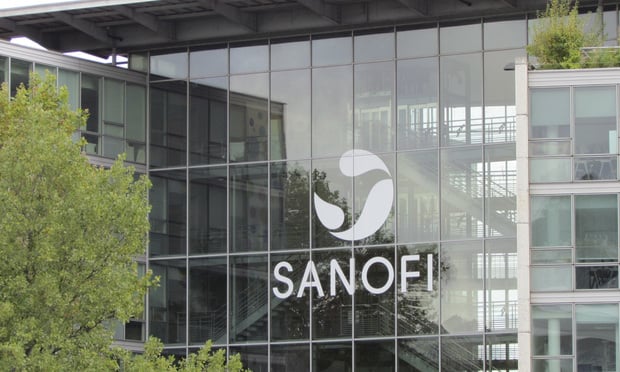Pharmaceutical stocks and bonds were among the day’s biggestwinners as the sweeping Republican victory in U.S. elections easedconcern that price controls might be imposed in the world’s largestmarket for prescription medicines.
|Even as drug companies rallied, other parts of the health sectorplunged. President-elect Donald Trump’s vow to repeal the Affordable Care Act sent shares of hospitalchains and insurers tumbling on the possibility that millions ofcustomers could lose coverage, disrupting the industry again just afew years after the landmark law took effect.
|Pfizer Inc., the biggest U.S. drugmaker, rose8.5 percent to $32.55 at 1:55 p.m. in New York. Health insurerCentene Corp. dropped 17 percent and Molina Healthcare Inc. slid 15 percent.Community Health Systems Inc. led declines by the three largestpublicly traded hospital companies, down 25 percent.
|‘Sigh of relief’
“Most biotech and pharma companies might be sighing a sigh ofrelief because Mrs. Clinton looked like she might do somethingdrastic on drug pricing,” Clive Meanwell, chief executiveofficer of Medicines Co., said by phone. Trump, he said, mayhave other priorities. “I suspect he’ll have bigger health-caretopics to take on first.”
|Trump has laid out little in the way of detail for his healthplans other than to say he would immediately repeal and replaceObamacare. Hillary Clinton made drug prices a key aspect of hercampaign, and there were concerns that her administration could putsubstantial pressure on drug prices.
|“For all he’s talked about repealing and replacing Obamacare, hehasn’t ever gotten specific about what he’d replace it with,” saidRandy Parrish, a high-yield portfolio manager at Voya InvestmentManagement, which oversees more than $208 billion. “So you’re notquite sure what that’s going to mean, or who benefits and who getshurt.”
|Republicans who maintained control of the House and Senate havealso promised to repeal the Affordable Care Act. Passed underPresident Obama in 2010, Obamacare created markets whereindividuals can buy health insurance, often with subsidies, andgave states funding to expand their Medicaid programs to morelow-income people. It also changed insurance regulations, addedtaxes and fees on the health industry and cut payments to hospitalsin exchange for the promise of more patients.
|‘On the chin’
HCA Holdings Inc. followed Community Health’s drop, down 13percent, while Tenet Healthcare Inc. slid 25 percent.
|“Stocks are really taking it on the chin, because the marketabhors uncertainty,” said Sheryl Skolnick, an analyst at MizuhoSecurities who covers hospital companies. “We know this is theworst possible outcome, but we don’t know how bad it is.” Shedowngraded some hospitals and health services companies shecovers, including HCA.
|Bonds plunge
Community Health ranked among the biggest losers in corporatebond trading, with its $3 billion of 6.875 percent notes due 2022down 6.9 cents to 70 cents on the dollar at 2:12 p.m. Tenet’s $1.9billion of 6.75 percent notes due 2023 fell 5 cents to 88.25cents.
|A repeal of the Affordable Care Act would result in “confusionand problems if not accompanied by a clear path to a new plan,”Moody’s Investors Service analysts led by Robard Williams wrote ina report Wednesday. Fitch Ratings analysts wrote that they foreseea negative impact on credit for health-care providers due to adecline in insured patients, which would also cause some pain forthe drug industry.
|Bonds of Tenet and Community Health trade at distressed pricesin large part due to concerns about shrinking profits. Theygenerate about 11 percent of their earnings before interest, taxes,depreciation and amortization from Obamacare, including Medicaidexpansion and public exchanges, said Jason McGorman, a BloombergIntelligence analyst who covers healthcare. Less Ebitda means lessmoney available to pay debt.
|“A lot of that Ebitda would disappear” if Obamacare is repealed,McGorman said. “And Community Health has already had a lot ofdownward pressure on Ebitda.”
|Community health
Community Health has $15 billion in debt, with large chunksstarting to come due in 2018 and much of it trading at deepdiscounts after two consecutive quarterly losses. The company hasbeen trying to dig itself out of debt by selling assets, but itspoor earnings and distressed debt mean many rivals likely aren’tinterested in a takeover.
|“With Community Health, it’s a company problem,” said KathleenGaffney, a portfolio manager at Eaton Vance. “Having said that,with the Trump win, it certainly doesn’t make it a positivebackdrop for hospitals.”
|Insurers drop
Many of the publicly traded health insurers have already pulledback from Obamacare’s individual markets, meaning that the harshestimpacts of repeal could be limited to companies that have stayed inthe markets or benefited from the expansion of Medicaid.
|Along with Centene, Anthem Inc. and Molina all have largeMedicaid businesses.
|Among the other large insurers, Humana Inc. and UnitedHealthGroup Inc. will benefit from a trend toward using the privatesector, rather than government programs, to deliver health-care ina Republican administration. Both firms are big players in theprivate health program for the elderly known as MedicareAdvantage.
|“On privatization, you have a tailwind,” said Ana Gupte, ananalyst with Leerink Partners who covers insurers. “You don’t havea threat of single payer or a public option.”
|Targeted change
For Obamacare, one possibility is that instead of wholesalerepeal, large portions of the law stay in place, with Trump andRepublicans in Congress targeting only parts. Aspects of Medicaidcould also be privatized, which could preserve some business forinsurers under the program.
|“The ultimate fate of ACA and/or select components will not besorted out in short order but rather over many months and possiblyyears,” said Thomas Carroll, an analyst with Stifel Financial Corp.“These companies had strong operations and business models beforeACA, and will after.”
|Clinton’s proposals
During the campaign, Clinton was a regular critic of high pricesof prescription drugs, and she has called for policies such aspenalties for some drugmakers whose increases are too frequent ordrastic. Trump has also criticized the high cost of prescriptiondrugs, saying individuals should be allowed to import cheaperpharmaceuticals from abroad.
|It’s possible Trump or Republicans in Congress might act on drugprices, and even without action, pressure on U.S. drug pricesprobably will continue, GlaxoSmithKline Plc CEO Andrew Wittytold Bloomberg TV on Tuesday.
|“A lot of people fixate on the political dimension and whatmight happen,” Witty said. “It’s also important to remember thatthe marketplace has itself put in tremendous mechanisms to ensureit gets good value for money.”
|Copyright 2018 Bloomberg. All rightsreserved. This material may not be published, broadcast, rewritten,or redistributed.
Complete your profile to continue reading and get FREE access to BenefitsPRO, part of your ALM digital membership.
Your access to unlimited BenefitsPRO content isn’t changing.
Once you are an ALM digital member, you’ll receive:
- Critical BenefitsPRO information including cutting edge post-reform success strategies, access to educational webcasts and videos, resources from industry leaders, and informative Newsletters.
- Exclusive discounts on ALM, BenefitsPRO magazine and BenefitsPRO.com events
- Access to other award-winning ALM websites including ThinkAdvisor.com and Law.com
Already have an account? Sign In
© 2024 ALM Global, LLC, All Rights Reserved. Request academic re-use from www.copyright.com. All other uses, submit a request to [email protected]. For more information visit Asset & Logo Licensing.








